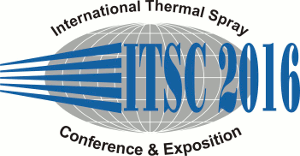| Abstract: |
Thermal spraying is one of the most industrial applicable surface engineering and coating technologies to fabricate thick coatings due to its numerous advantages. Thermal spray had wide variation of techniques (Plasma, Arc, flame, cold spray, warm spray, aerosol deposition) and wide variety of spray materials (rod, wire, metals, intermetallic compounds, ceramics, plastics and their compounds). Although, these wide variations of techniques and spraying materials, fabrication of thermal sprayed nitride ceramic coatings is big challenge. Thus, the nitride feedstock particles decompose under the high temperature without any stable molten or semi-molten phase. Therefore, it was difficult to deposit most of nitride ceramics in thermal spray process.
Reactive plasma spray (RPS) is the promising solution among the thermal spray techniques to fabricate nitride coatings. It is a processing method which combines the in-situ synthesis and deposition of reaction products. Generally the RPS process depends on the reaction of the molten or semi-molten particles with the surrounding active species in the plasma jet followed by the deposition of the required nitride coatings. Reactive plasma spray process was suitable technology to fabricate the aluminum nitride (AlN) coatings. This paper will discuss the particle diagnostics during reactive plasma spray process and as well as the properties of the fabricated AlN coatings.
|
|
